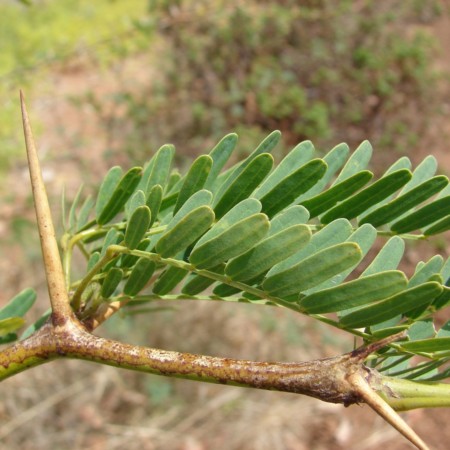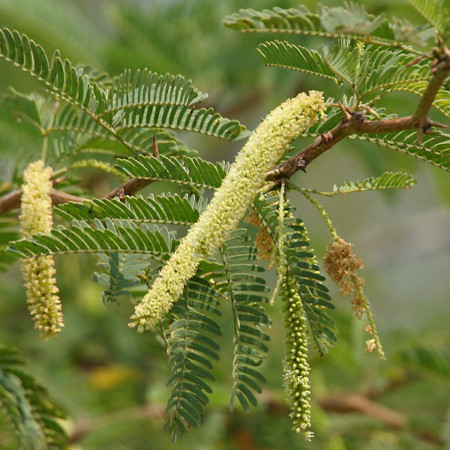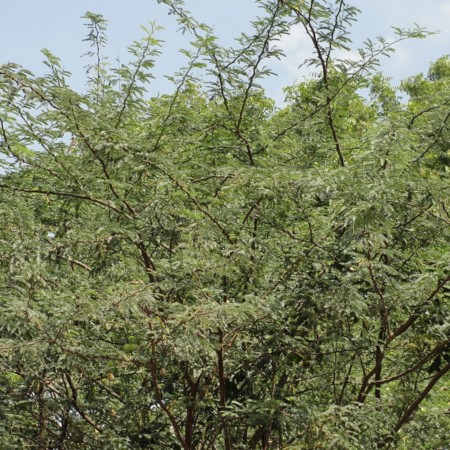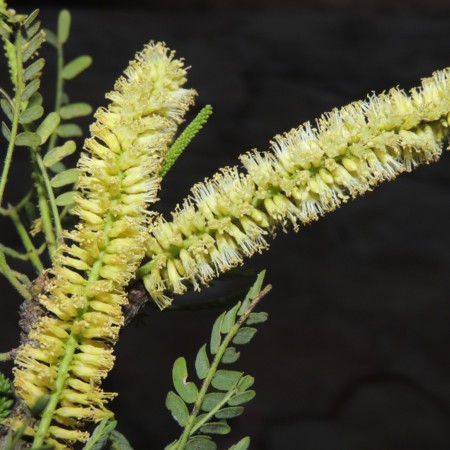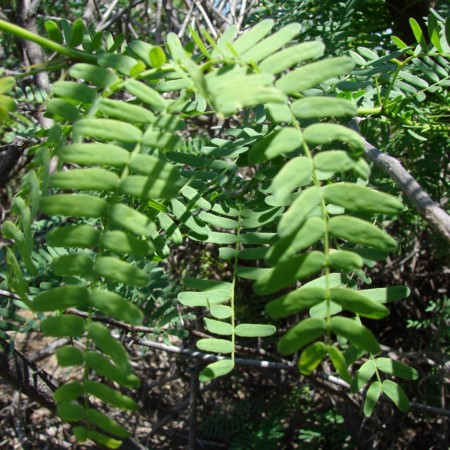(Photograph = Prosopis juliflora, Poncho Borquez)
Introduction
Prosopis juliflora is a large shrub or small tree in the family Fabaceae, a kind of mesquite. It is native to the Mexico, South America and the Caribbean. It has become established as an invasive weed in Africa, Asia, Australia and elsewhere.
The Details
P. juliflora has had an impressive number of scientific names and has been considered an Acacia as well as a type of Mimosa. It seems to have settled into its current name well. It is a member of the Leguminosae (bean family). Prosopis juliflora thrives in most soils including; sandy, rocky, poor and saline soils within an altitude range of 300-1900 m above sea level. where it has deep taproots which help to access sub-surface waters. One Arizona tree had roots that descended to 175 ft.
P. juliflora can grow up to 30-ft tall, or taller, but it often a small tree or large shrub. The green bean-like seed pods are 8- to 15-inches long and contain up to 30 bean-like seeds. Seeds are spread by cattle and other animals that consume the pods.
P. juliflora is used for forage, word, and environmental management. It is important in certain tropical woodlands for wildlife and is a nurse tree for certain columnar cacti. It is considered a noxious invader in Ethiopia, Hawaii, Sri Lanka, Jamaica, the Middle East, India, Nigeria, Sudan, Somalia, Senegal and southern Africa. P. juliflora is a conflict of interest species because it has clear uses but is also clearly a noxious weed.
A Note
Prosopis species are salt and drought tolerant with deep roots which tolerate dry as well as waterlogged soils. Seed production is prolific. Trees rapidly form dense thorny thickets that reduce biodiversity. Invaded grasslands are transformed to woodland and forests, pasture is lost. Loss of grass cover under canopies may also promote soil erosion. It has massive impacts upon water resources. The tree resprouts easily after damage.
Additional Reading: Prosopis juliflora

